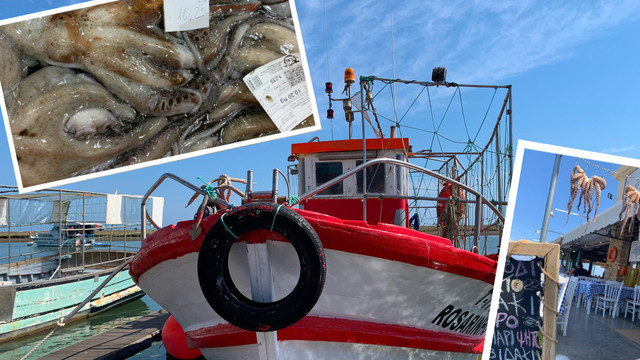Harmful subsidies reduce effectiveness of fish poo as a carbon sink, analysis suggests
Every taxpayer dollar prevents up to 3.8kg of carbon-rich faeces sinking to the seabed.
Harmful subsidies for industrial fishing are hampering ocean ecosystems’ ability to capture and store huge quantities of climate-warming carbon every year, suggests new analysis by IIED and the University of British Columbia’s (UBC) Fisheries Economics Research Unit.
This is because fish trap atmospheric carbon by consuming organisms like plankton and algae – or smaller fish that have consumed them – then transfer it to the seabed in their faeces or their bodies when they die. Fish faeces are believed to be among the most efficient means of transferring carbon from the atmosphere to the deep sea.
The billions of dollars in taxpayer money that incentivise unsustainably high fish catches are disrupting this cycle, effectively acting as a brake on efforts to tackle climate change as well as upsetting the delicate balance of life in the oceans.
Every US dollar spent on harmful industrial fishing subsidies leads to as much as 3.8kg per year of fish faeces not being produced, researchers have found. Their analysis comes as the World Trade Organisation (WTO) hosts negotiations in Abu Dhabi designed to strengthen a deal made last year to crack down on some – but not all – harmful subsidies.
Annabelle Bladon, a senior researcher at IIED, said: “We’ve known for a long time that overfishing is damaging ocean ecosystems, but for years it appears also to have been acting as an unseen brake on action to beat climate change.
“It makes sense for people and the planet to redirect the billions spent on harmful subsidies towards positive actions, such as managing fisheries sustainably and supporting coastal communities which rely on the sea for survival. That would begin to rebuild the ocean’s capacity for absorbing and storing carbon as well as safeguarding fish stocks to feed future generations.”
'Harmful' subsidies, as defined by the WTO, directly encourage more intensive fishing by artificially increasing companies' profits or reducing their costs. Examples include tax breaks and subsidised fuel.
Between 2015 and 2019, the year of the most recent available data, the average annual industrial fish catch was 69.1 million tonnes, while 'harmful' industrial subsidies totalled US$18.4 billion in 2018 – again, the most recent figure available. This means each dollar of harmful subsidy leads to about 3.8kg of fish caught.
Studies suggest one tonne of fish can ingest and process five tonnes of biomass per year, of which one-fifth is excreted as faeces, which means catching a tonne of fish prevents a tonne of carbon-rich faeces from sinking into the deep ocean. A dollar of harmful subsidies therefore means roughly 3.8kg of faeces not produced.
The figure is not exact because although the bulk of subsidies going to industrial fleets are harmful, not all industrial catch can be attributed to harmful subsidies. A paucity of data means it’s extremely difficult to find exactly how much carbon this weight of faeces could have contained. Our calculations also don’t include the additional carbon that would be buried in the bodies of fish that complete their life cycles.
Louise Teh, a research associate at UBC, said: “Although last year’s WTO deal was a big step forward, it has not yet come into force because too few governments have formally accepted it.
“This week’s conference is a huge opportunity to strengthen rules around harmful subsidies and for countries to show they are serious about implementing them.”
Notes to editors
- Read a background briefing with more information and in-depth references.
For more information or to request an interview, contact Simon Cullen:
+44 7503 643332 or simon.cullen@iied.org



